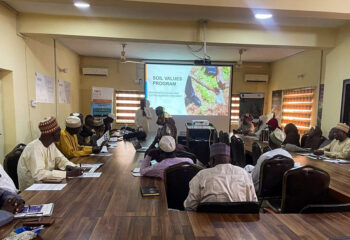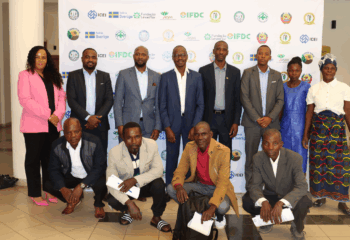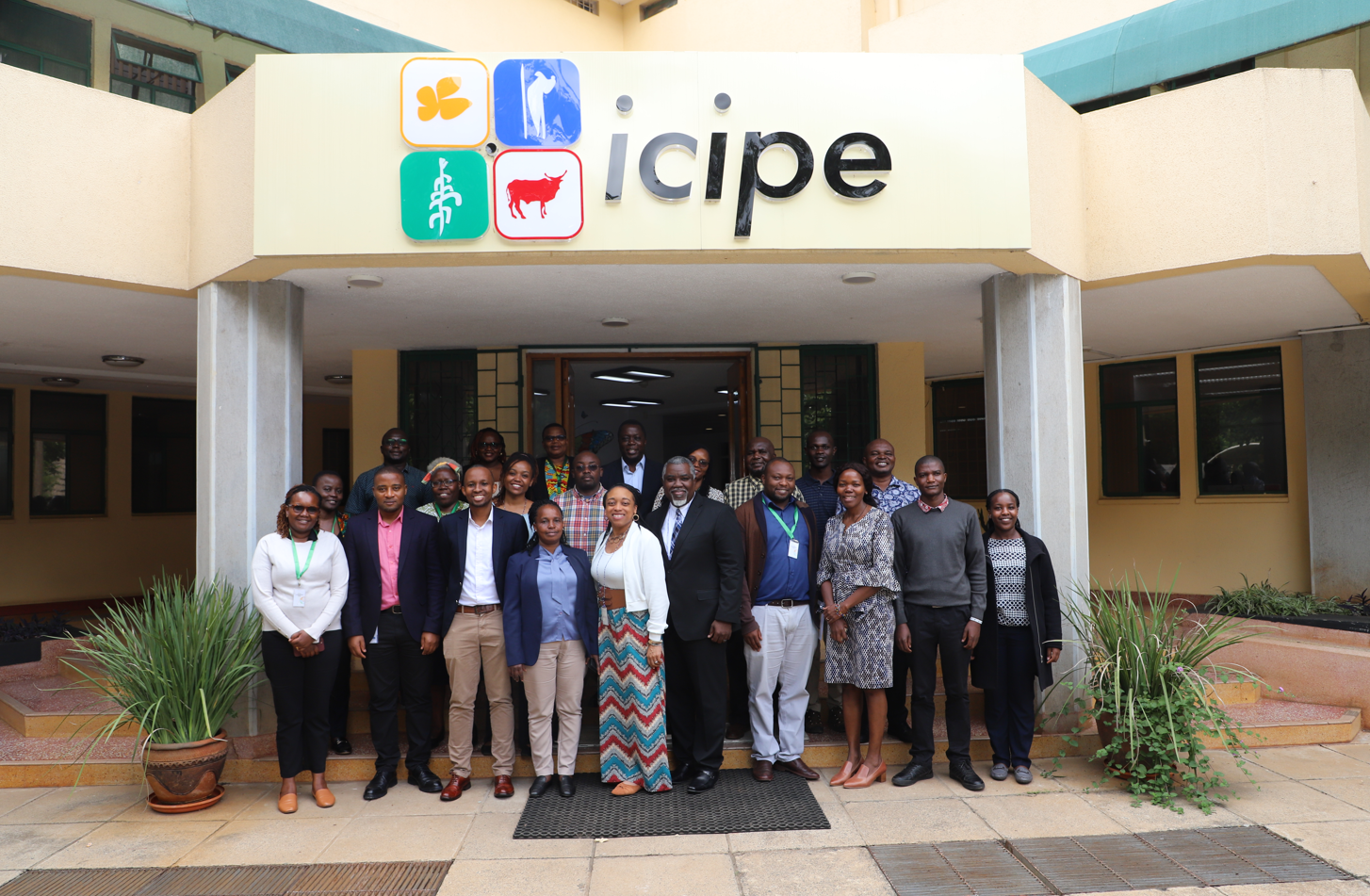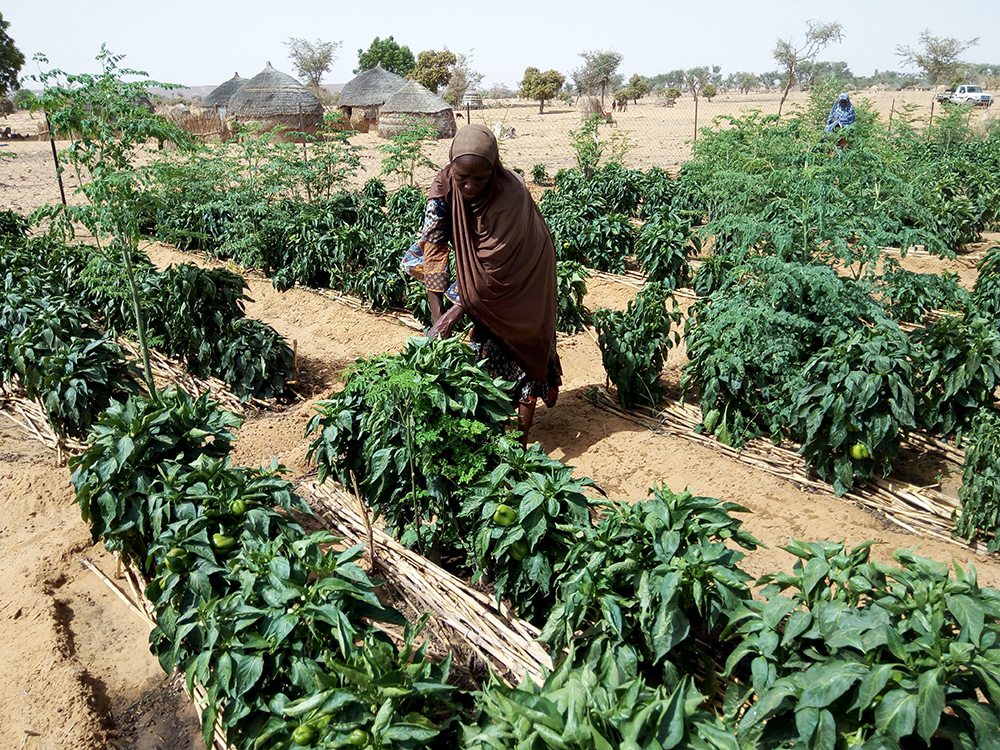
Niger is a Sahelian country with a population that regularly suffers from famine and malnutrition. Climate change and variability, in addition to poor soil health, constitute major constraints to achieving food security and fighting poverty. Paradoxically, Niger has one of the lowest rates of national fertilizer consumption per hectare (ha) of arable land in the world at less than 3 kg/ha/year, which is far below the target of 50 kg/ha/year set for Africa at the 2006 Abuja Fertilizer Summit. This low level of fertilizer consumption does not allow for the rates of agricultural production needed to meet the country’s food needs.
In light of this, the Government of Niger has undertaken reform of the fertilizer sector since 2018, assisted by the Millennium Challenge Corporation (MCC) of the United States. The Millennium Challenge Account (MCA)-Niger has signed a contract with IFDC for the development and implementation of a Support Program for the Reform of the Fertilizer Sector (PARSEN).
Fertilizer sector reform would provide Nigerien producers with better access to a wide range of quality fertilizers at more competitive prices, in line with international prices.
PARSEN has enabled significant progress in the reform of the fertilizer sector by assisting in several areas.
First, the project worked with stakeholders to put an institutional and regulatory framework into place. This framework allowed the creation of three new bodies that better represent fertilizer actors, replacing the parastatal Centrale d’Approvisionnement en Intrants et Matériel Agricole (CAIMA), which previously monopolized the country’s fertilizer supply on behalf of the State. The first of the three bodies, the Niger Fertilizer Market Observatory (OMEN), is a strategic body that monitors and regulates the supply and distribution of fertilizer. OMEN also promotes competition in the fertilizer trade. The second body, the Technical Committee for Fertilizers in Niger (COTEN), is the technical body providing analyses and observations that feed into decision-making processes in the fertilizer sector. COTEN guides OMEN in advising the government. Finally, the Regional Fertilizer Technical Committees (CTER) operate within their respective regions parallel to COTEN at the national level.
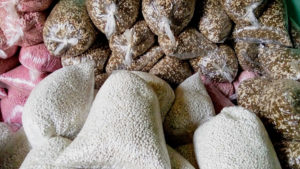
Second, new fertilizer regulations enshrine the liberalization of the sector and allow a professional and organized private fertilizer sector to ensure the supply of fertilizer to the country. The Nigerien Association of Fertilizer Importers and Distributors (ANIDE), created in August 2019, already has more than 160 members and is associated with the West African Fertilizer Association (WAFA), which is recognized by the Economic Community of West African States (ECOWAS) as the voice of the fertilizer industry for West Africa.
Third, a regulatory framework implemented by the government better defines the conditions for fertilizer trade, thus protecting the actors of the sector (including the private sector and consumers), the population, and the environment:
- A law punishing offenses relating to the manufacture, import, export, and sale of fertilizers in Niger was recently enacted. This law comes at an opportune time because the Nigerien market is characterized by the presence of poor-quality fertilizers.
- The Ministry of Agriculture and Livestock of Niger has also issued several decrees setting: (i) terms and conditions for obtaining approvals for the import and export of fertilizers; (ii) conditions for the sale of fertilizers; and (iii) procedures for fertilizer laboratory inspection and analysis.
Finally, reforming the fertilizer sector involves capacity building of state structures to monitor the use of fertilizers and enact quality control measures. Thus, the Directorate General of Agriculture has recently been restructured by a government decree to include a Directorate of Fertilizer Inspection and Control (DICE). IFDC has helped train some 60 agricultural executives to act as official fertilizer inspectors.
All of the regulatory and institutional arrangements implemented as part of the reform of the fertilizer sector allow Niger to comply with ECOWAS Regulation C/REG.13/12/12, which aims to harmonize the quality control of fertilizers in ECOWAS Member States.

